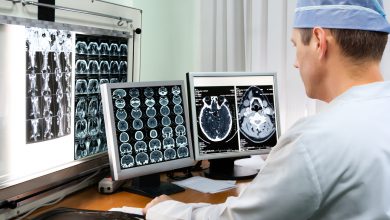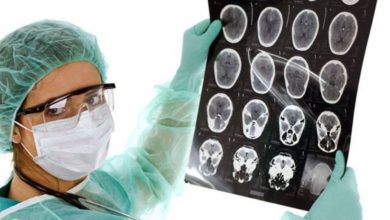Symptomatic detection of brain cancer
Among the many rare diseases, there are those that, due to the unpredictability of their development, attract the attention of scientists from all over the world.
What is a brain tumor?
Malignant neoplasms can develop in a person at any age; their determination in medicine is a rather complex procedure, a symbiosis of laboratory tests and consultations with an oncologist. Brain tumors come in many varieties and develop in the skull or in the central canal of the spinal cord. Therefore, getting to the tumor will be very difficult with surgical intervention, which makes this disease one of the most dangerous today.
In medicine, cancer is diagnosed when a neoplasm spreads to neighboring areas and develops rapidly, putting strong pressure on the outer shell. Since there is a rather limited space in the skull, benign tumors often cause serious complications, when without proper care and timely treatment the disease can be fatal.
What are the signs of brain cancer?
In most cases, it is not possible to detect damage to brain tissue in the early stages , since this disease has quite extensive symptoms, depending on the local location of the tumor. The main criteria are:
- Intense and frequent pain in certain areas of the skull
- Sudden vomiting, usually accompanied by headaches
- Dizziness due to high intracranial pressure
- Neuralgic disorders and mental disorders
- Epileptic seizures and convulsions that occur without any reason
- Functional disorders of the sensory organs (vision, hearing, smell)
- Behavioral symptoms (apathy, inability to concentrate, memory problems)
Such phenomena in patients are not unique; they can also be caused by other diseases associated with the functioning of the central nervous system and areas of the brain. Therefore, identifying tumors inside the skull first requires careful analysis.
There are general concepts of symptomatic heredity for individual areas. For example, if there are formations in the frontal lobe of the brain, a person exhibits apathetic moods, lethargy and lack of initiative, forgetfulness and untidiness. This may be accompanied by unmotivated aggression, abruptly giving way to euphoria.
Temporal lobe cancer often causes visual visions and strange olfactory and taste sensations. Tumors in the parietal lobe will certainly affect the motor functions of the body.
When consulting at an oncology center, you should take into account the maximum of all possible signs and apply hardware diagnostic methods. This will allow you to most accurately identify the source of the disease and determine the stage of its development.
Please rate the article:





